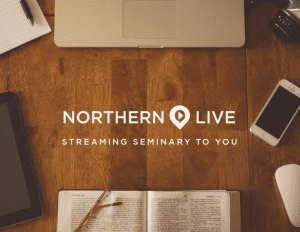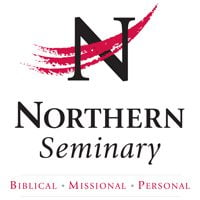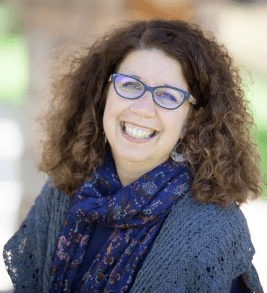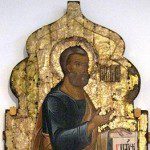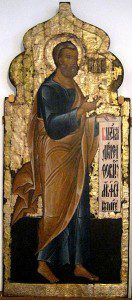By Jason Malec
Nearly a decade ago, Rob Bell had become a household name among evangelical leaders. With a burgeoning, innovative church in Grand Rapids, MI (which launched with a one-year sermon series on LEVITICUS!), a successful video discipleship tool called Nooma, and several creative books that were challenging how evangelicals thought of their place in the world (Velvet Elvis, Sex God, etc…), Rob had created quite a “brand.”
Now, after several years of relative quiet (at least in evangelical circles), having left Mars Hill Church, ending the Nooma series, and publishing what many consider a scandalous rejection of the doctrine of hell (Love Wins), Rob has published What Is the Bible? How and Ancient Library of Poems, Letters, and Stories Can Transform the Way You Think and Feel About Everything.
I just finished the book, and figured I’d share a few thoughts. That said, I do so with trepidation because these are important topics, and striking the balance between generous and constructively critical isn’t easy. Though I’m a pastor, have a theology degree, and work at a Bible organization, I read this book and write simply as a Bible fan who’s interested in helping others engage and understand the Bible.
I’ll cut to the chase for those who are impatient… Here are several things I like about the book:
- Rob is a fun writer. And this is classic Bell-ish writing. Short, punchy, and culturally-savvy. But deep and meaningful at the same time. Some individual paragraphs (if you can call a bunch of chunked, fragmented sentences paragraphs) could be turned into entire books.
- Rob’s also a great question asker. I’d love to count the number of question marks in the book. I’m betting 10% of the sentences are questions. (Though if I never see the phrase, “…which leads to another question…” again, I’ll be ok.) This is one thing I’ve always appreciated about his writing and preaching… Curiosity often leads to new and important insights.
- He’s clearly spent A LOT of time reading, studying, talking about and reflecting on the Bible. This shows through in his deep exegesis and analysis of passages many of us have read tens, if not hundreds of times. I have a ton of respect for the priority the Scriptures play in his life.
- The book demonstrates a tremendous amount of investment in and understanding of the historical and cultural context of individual Bible stories. Whenever I read the Scriptures, I try to understand them in biblical context. But that context is often one, giant era—“back then.” Rob emphasizes the importance of understanding what was ACTUALLY going on at THIS precise moment. (And what had happened before that led to this moment.) This is a helpful recalibration in my thinking.
Here are several things I don’t like:
- Rob includes a fairly extensive “bibliography,” but doesn’t cite any authors throughout the text. (None that I recall, anyway.) So it’s hard for me to tell if all the ideas are his, or which are Wright’s or Crossan’s that he’s borrowed or expanded.
- Though I noted my appreciation for Rob’s questions, I often wonder how many he answers. Of course, as he notes, Jesus practiced a similar rhetoric with his conversation partners. So perhaps I need to chillax a bit here.
- The book seems to evolve from beginning to end. In the early chapters, Rob likely pulled some old sermon notes and converted them into book chapters, which seems safe and fair. But as the book progressed, he began teasing out less safe material, climaxing with some seriously controversial theology in the latter chapters. The evolution of ideas isn’t a bad thing. But I sensed a bit of “bait & switch.” (i.e. “Hook em with some easy to swallow exegesis early, and apply pressure with the challenging stuff once they’re tiring out near the end…”)
- I’m not sure who Rob’s writing to. He seems to waffle between wooing the Oprah-spirituality-pop-culture audience, himself (at times, I wondered if this was a self-assurance diary entry… Repeating to himself, “I’m going to be ok!”), and a flipping-the-bird to his former evangelical compatriots.
From a theological perspective, it won’t surprise many that Rob’s reviving the old historical-critical, Jesus Seminar positions about the Bible. It’s purely manmade. The writers wrote what they saw, based on their perception of God or gods (not on any divine inspiration). Progressive revelation mandates that we continue evolving in our theology too. Etc… (One gander at his bibliography, and you’ll understand the hermeneutic.) Those familiar with the fundamentalist-modernist controversy, or the circumstances that triggered the Chicago Statement on Biblical Inerrancy won’t be alarmed by any of this. But I found myself wondering, “What does Rob think about Jesus and the resurrection?” Was this, too, nothing more than a made-up story to imitate other religions or claims to a superior deity? While Bell doesn’t ask or answer that question, to me, this is the fulcrum on which the entire Christian faith exists. And if it goes, “our faith is in vain.”
Rob has been on a fascinating theological journey. He and I differ in our view of the Bible, how it came about, and why we can learn from it today. But if tens of thousands, or even millions of Oprah followers open the Bible because this book inspires them to consider it more attractive and inviting, I will celebrate that. And though I’m certain Rob will alienate himself even further from his former tribe, I’d like to think God can use all of us—me, with all of my crappy theology and praxis, included—to build his kingdom.



